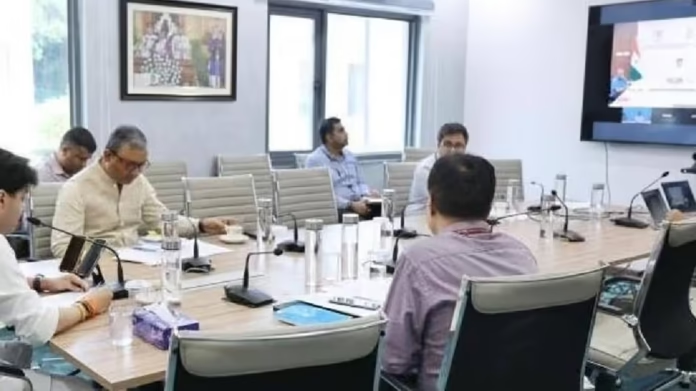Tripura Chief Minister Dr. Manik Saha has intensified efforts to draw central support for the state’s development, placing key demands before Union Minister of DoNER Jyotiraditya Scindia during a crucial meeting held on May 15, 2025. With the aim of bringing Tripura on par with other leading states in terms of healthcare, connectivity, and energy affordability, the Chief Minister pressed for the establishment of an All India Institute of Medical Sciences (AIIMS) in the state, initiation of international flight operations, and reduction in natural gas prices. The meeting focused on aligning Tripura’s growth with the Centre’s vision of an inclusive and progressive North East.
Dr. Saha stressed that Tripura, despite its consistent strides in development, requires a world-class medical institute to cater to the healthcare needs of its population and neighboring states. He emphasized that an AIIMS in Tripura would not only improve advanced healthcare access for residents but would also serve as a regional center for medical education and research. With the state witnessing an increasing demand for specialized healthcare, the proposal has gained momentum among both policymakers and the public.
On the subject of international connectivity, the Chief Minister highlighted the state’s strategic geographical location and its potential to emerge as a gateway to Southeast Asia. He requested the immediate launch of international flight services from Maharaja Bir Bikram (MBB) Airport in Agartala to destinations such as Chittagong and Bangkok. Dr. Saha noted that such services would significantly boost tourism, trade, and cultural exchange while also supporting the movement of goods and professionals between Tripura and neighboring countries.
Another major concern raised during the meeting was the pricing of natural gas. Tripura is a gas-rich state, yet high input costs continue to hamper industrial growth and discourage new investments. Dr. Saha requested that the central government consider price concessions and policy reforms that would make natural gas more accessible and affordable for domestic industries and power generation units. He emphasized that competitive gas pricing would enhance Tripura’s energy security and economic competitiveness.
Jyotiraditya Scindia acknowledged the strategic importance of Tripura and assured that the Ministry of DoNER would examine the proposals with due seriousness. He stated that the Centre is committed to ensuring equitable development across all northeastern states and is working on a roadmap that involves cross-sectoral collaboration and stakeholder engagement. The Minister appreciated the Chief Minister’s proactive approach and reaffirmed support for key infrastructure and connectivity projects in the region.
In addition to these core demands, Dr. Saha also spoke about the need to accelerate central clearances for ongoing projects under the North East Special Infrastructure Development Scheme (NESIDS) and PM-DevINE. He urged that greater flexibility and faster disbursement of funds would help states like Tripura deliver timely benefits to the public. He pointed out that the state has been making efficient use of central funds and is ready to take on more ambitious projects provided the institutional support is timely and robust.
The meeting also discussed opportunities for private investment, with Dr. Saha inviting potential investors to explore sectors like bamboo, agro-processing, handloom, and IT in Tripura. He emphasized that the state government is ready to offer policy incentives, streamlined approvals, and a supportive industrial ecosystem to entrepreneurs and businesses.
This high-level discussion reflects Tripura’s active push to leverage central assistance and policy reform for transformative development. The Chief Minister’s demand for AIIMS, international connectivity, and gas concessions represents a strategic vision to integrate the state more deeply into national and global networks. As the Centre considers these proposals, hopes are high that Tripura will soon witness enhanced infrastructure, economic vitality, and improved quality of life for its citizens.




